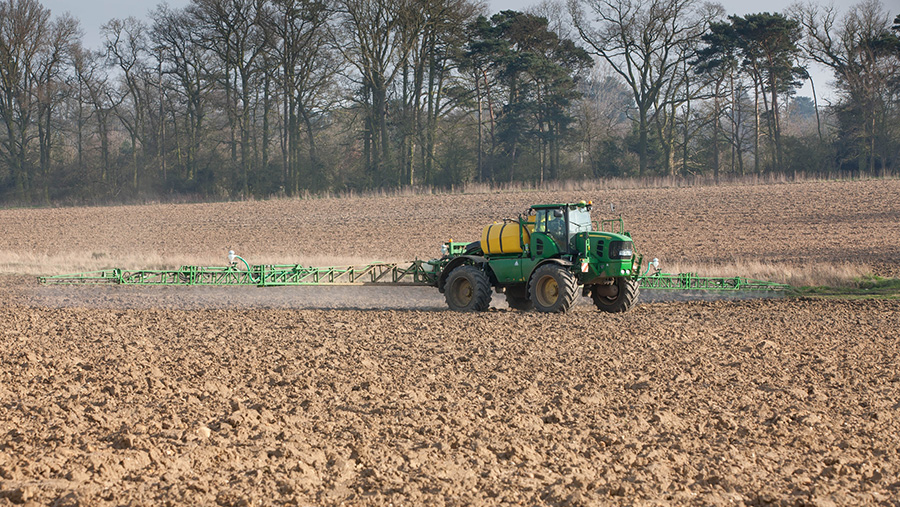Hogan expresses hopes for 10-year glyphosate reauthorisation
 © Tim Scrivener
© Tim Scrivener The European Commission is getting ready to start the process to get glyphosate reauthorised for at least 10 years, EU farm commissioner Phil Hogan has indicated.
Speaking at the European Economic and Social Committee (EESC) on 11 April, Mr Hogan said that “hopefully in the next few weeks we can get a decision to reauthorise glyphosate for at least the next 10 years.”
His comments come just weeks after European scientists gave glyphosate a clean bill of health, dismissing fears that it causes cancer.
See also: EU scientists reject glyphosate cancer claims
The European Chemicals Agency (ECHA) issued an opinion on the controversial weedkiller in March, which said that there was not the scientific evidence to classify glyphosate either as a “carcinogen, as a mutagen or as toxic for reproduction”.
Reauthorisation derailed
The farming industry had hoped last year that glyphosate, which has been used on farms for more than 40 years, would be relicenced for a period of 15 years.
However, the process was derailed after the International Agency for Research on Cancer claimed that the product was “probably carcinogenic”.
After a storm of protest, the EU Commission was forced to extend the licence for just 18 months – to 31 December 2017.
Glyphosate campaign
Over recent months’ UK farmers have been urged to to get involved in the fight to keep glyphosate by writing to their MP and MEP to outline the importance of the product on their farms (see NFU Scotland campaign).
Farmers are using platforms like Twitter and Facebook to spread the message that the use of glyphosate reduces the need to use other herbicides, helps to protect soil and cuts greenhouse gas emissions by reducing the need for ploughing.
The difficulty is that any proposal to reauthorise glyphosate is unlikely to go unchallenged, with a range of green groups across Europe adamant that the product poses a threat to human health and the environment.
A European petition launched in January, which calls for a ban on glyphosate to “protect people and the environment from toxic pesticides”, has already been signed by 680,336 members of the public.
The petition also calls for EU-wide mandatory reduction targets for pesticide use.
No firm proposal
A spokesman from the EU Commission stressed that Mr Hogan had expressed his expectation, but there was not yet a formal proposal on the table.
“A decision on the possible reauthorisation of glyphosate will be taken before the end of the year at the Plants Animals Food and Feed Committee, on that basis of a commission proposal, after the commission receive the final opinion of the European Chemical Agency (ECHA) on glyphosate,” he said.
NFU Scotland campaign
NFU Scotland has become the latest organisation to launch an official campaign for the reauthorisation of glyphosate.
The union is pushing for the reauthorisation to be for a 15-year term and to cover it for pre-harvest use.
NFU Scotland president Andrew McCornick said glyphosate had received a clean bill of health from the European Food Safety Authority, European Chemicals Agency, World Health Organization, and the Food and Agriculture Organisation of the United Nations.
“This scientific consensus means that if regulation of plant protection products in the EU is to have any credibility at all, glyphosate must now be reauthorised for a further 15 years – including for pre-harvest use.
“Whilst the union has written to all Scottish MEPs to encourage them to support the reauthorisation of glyphosate, it would be invaluable if these MEPs also heard directly from farmers who use glyphosate about what it means for them.
“That message could be delivered even more powerfully if farmers were able to get MEPs on farm to discuss the issue. I encourage all Scottish farmers who want to see glyphosate remain in their toolbox to contact their MEP as soon as possible.
“It is also important that these messages are being spoken about on social media. NFU Scotland will be making its case on social media, using the hashtag #GlyphosateIsVital, and I encourage others to do the same.”

